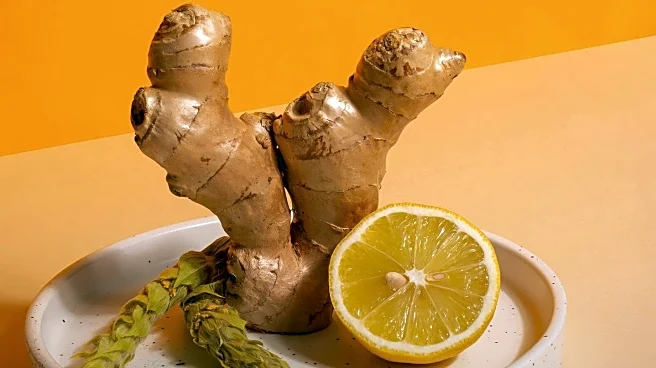What is the story about?
What's Happening?
Researchers have studied the microbiome of María Branyas Morera, who lived to 117, revealing insights into the role of diet in longevity. Her diet, rich in probiotics and prebiotics, supported a youthful gut microbiome, typically lost with age. This study highlights the potential of dietary habits in maintaining gut diversity and health, which may contribute to longer life spans. Branyas's microbiome was found to be rich in Bifidobacterium, a beneficial bacteria that usually declines in older adults. Her diet included daily consumption of live-culture yoghurts and a Mediterranean-style diet, which may have contributed to her microbial health and longevity.
Why It's Important?
The findings underscore the importance of gut health in aging and longevity, suggesting that dietary choices can significantly influence health outcomes in older age. This research could impact public health recommendations, emphasizing the role of diet in maintaining a healthy microbiome. As the population ages, understanding the factors that contribute to longevity becomes increasingly important. The study suggests that a diet supporting gut diversity could reduce the risk of chronic illnesses and promote better aging outcomes, potentially influencing dietary guidelines and health policies.
Beyond the Headlines
The study of Branyas's microbiome adds to the growing body of evidence that lifestyle factors, such as diet, play a crucial role in health and longevity. While genetics contribute to longevity, the study highlights that daily dietary choices have a significant impact on gut health. This research may lead to a broader understanding of how diet can be used as a tool for promoting health and longevity, encouraging individuals to adopt dietary habits that support a diverse and balanced microbiome.















